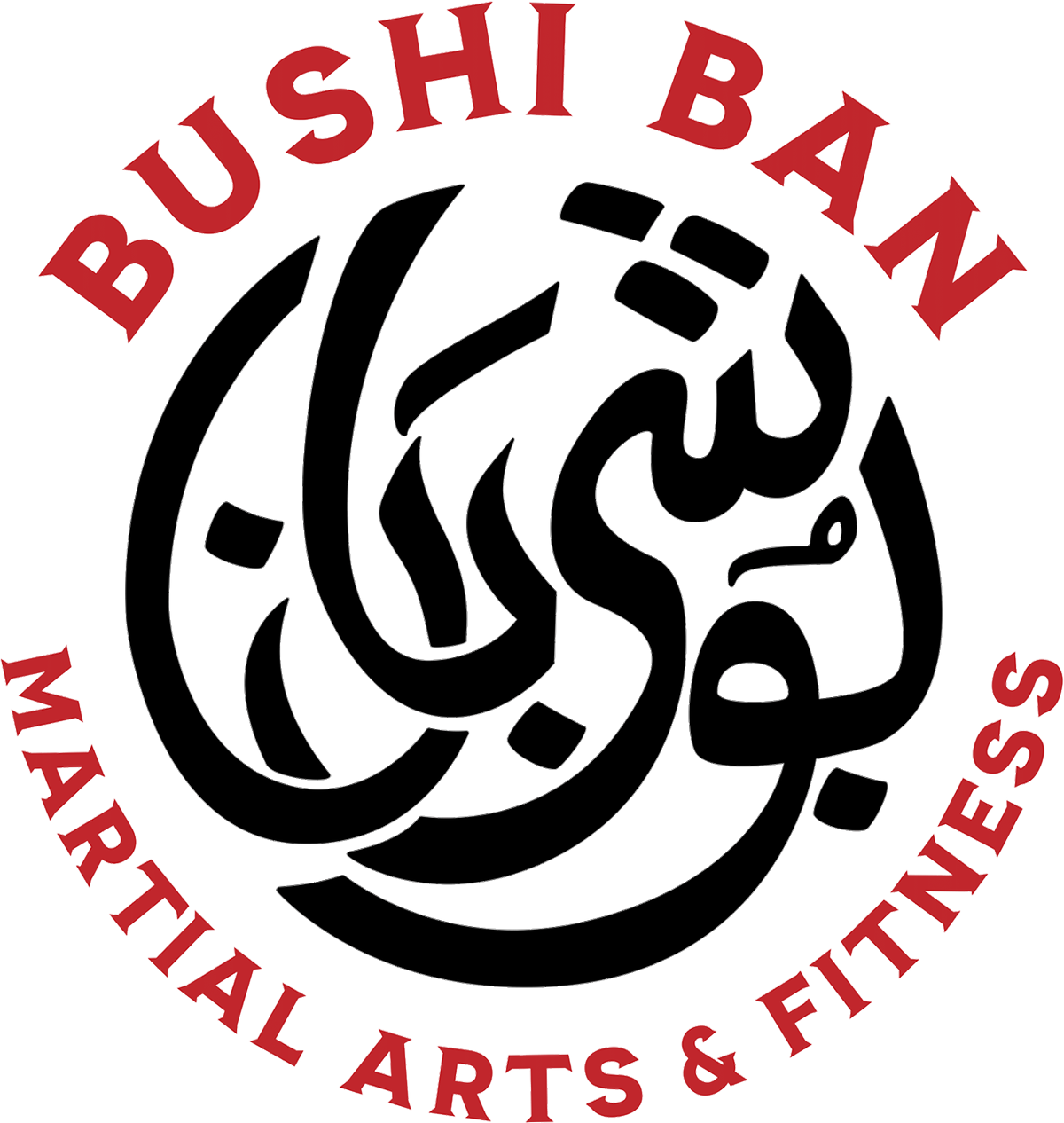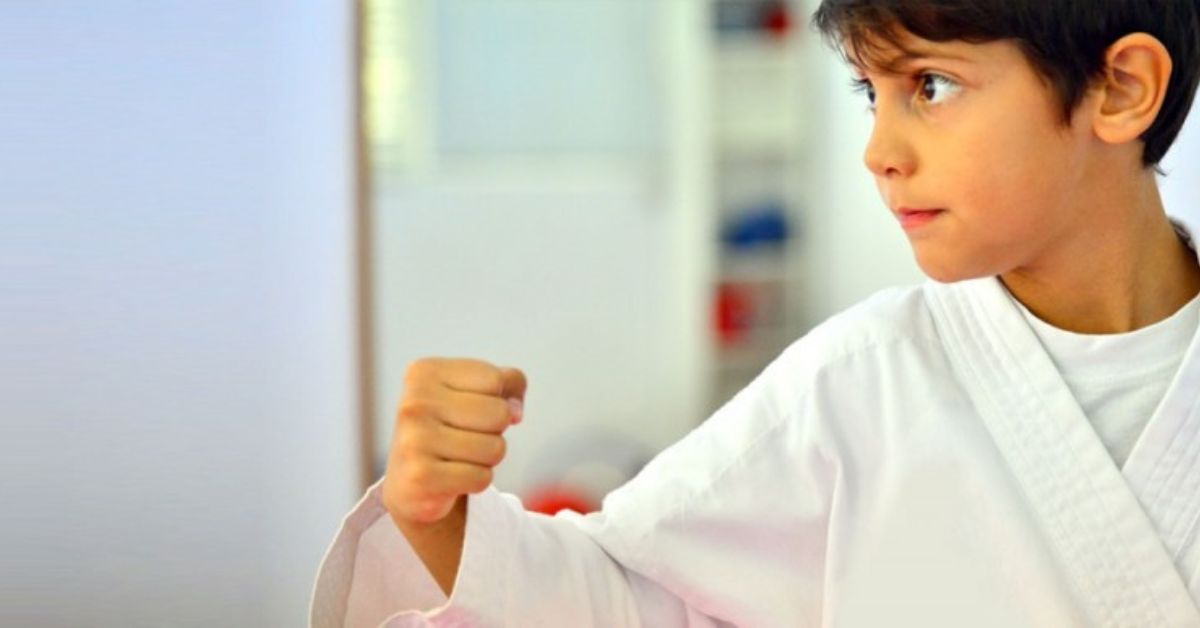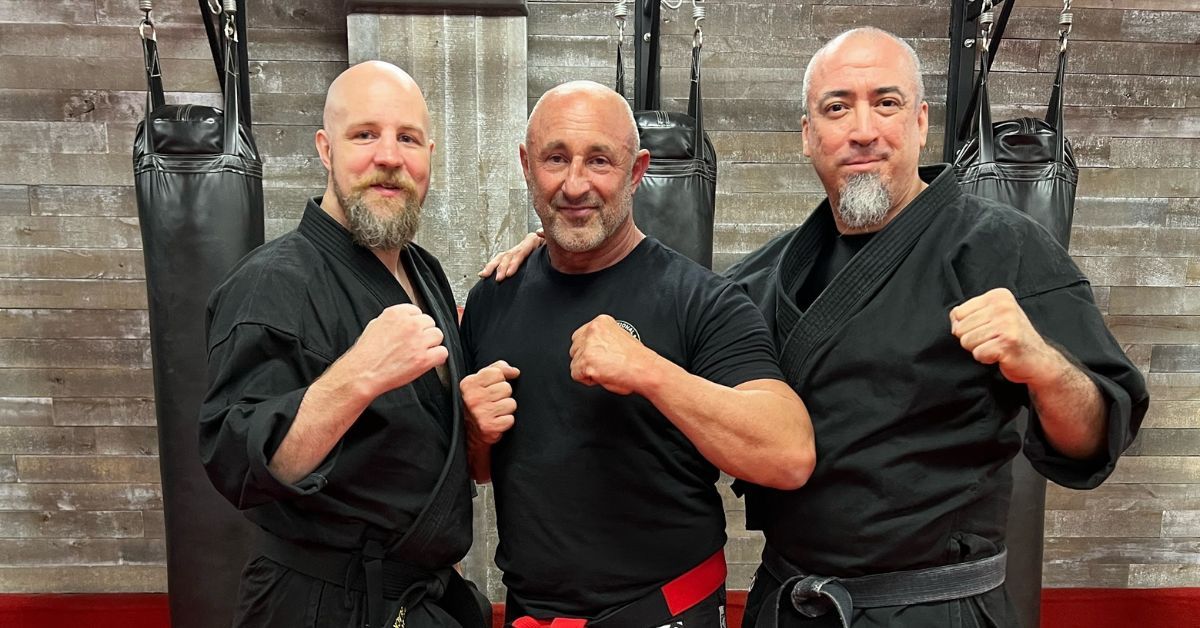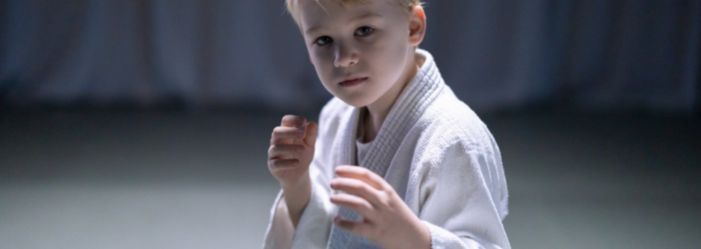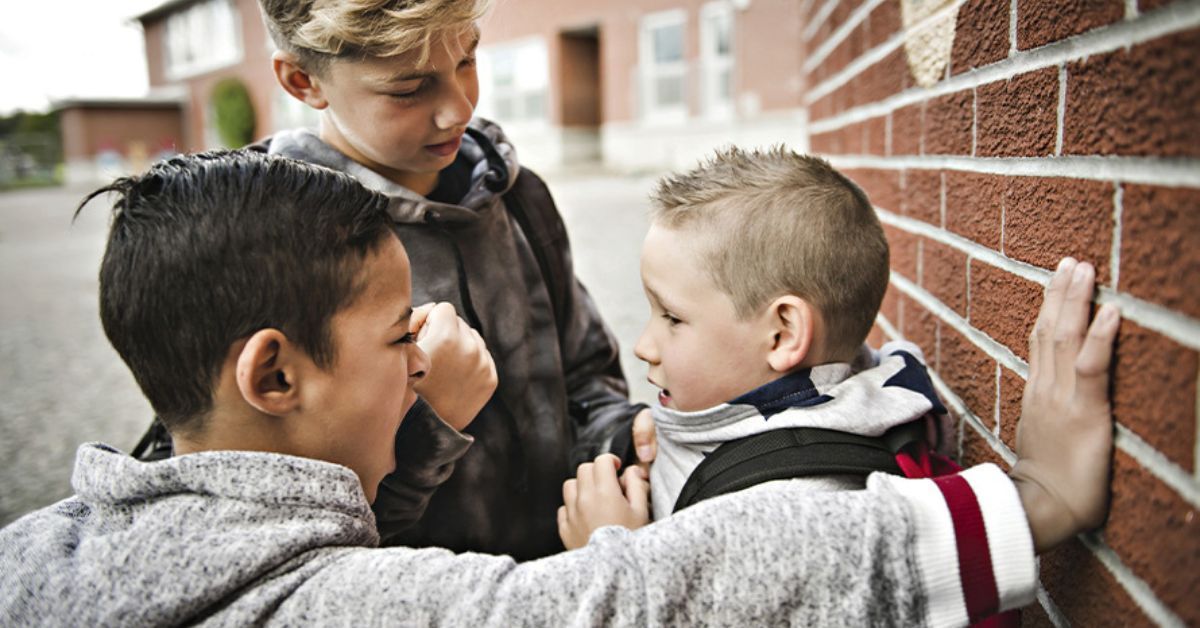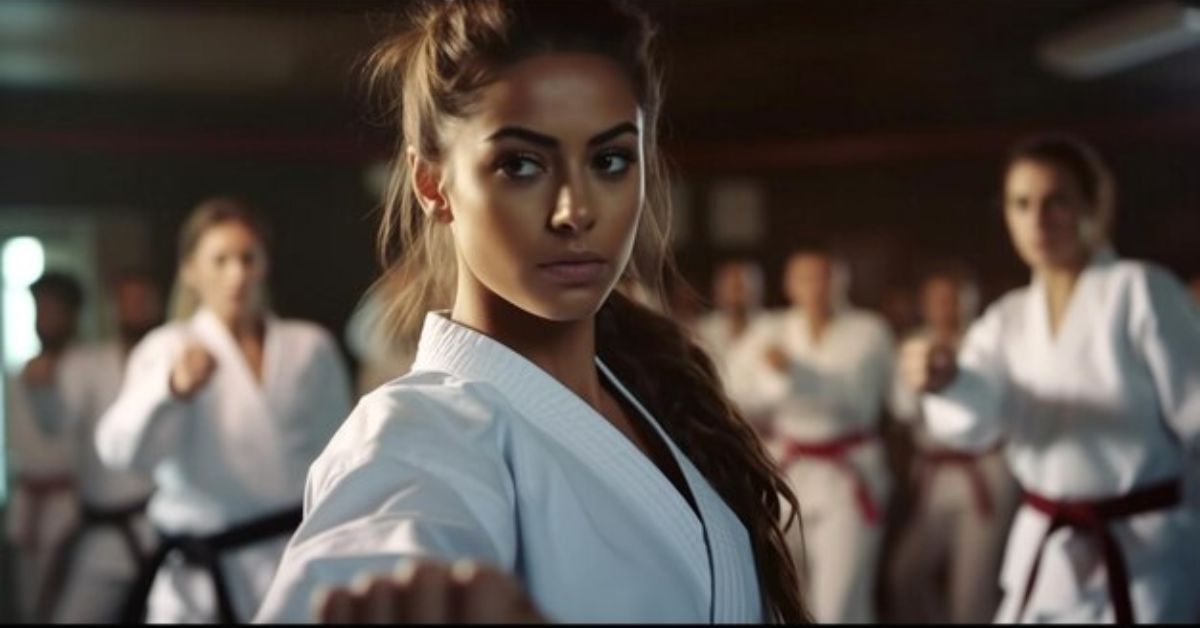Our Blog
Stay updated with the latest news, tips, and insights from Bushi Ban DFW. Our blog covers everything from training techniques to community events.
Bushi Ban DFW Blog
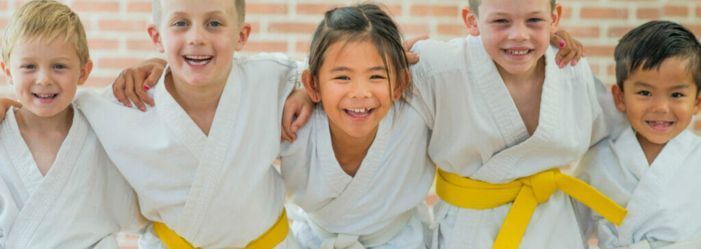
By Kailer Mattingly
•
September 11, 2024
As parents, we all want to help our children succeed, especially when they face challenges like ADHD. You’ve likely tried various activities to help them burn off energy, stay focused, and boost their confidence, but nothing seems to hit the mark causing more frustration. Don’t lose hope yet! This is where martial arts come in—a surprising solution proving to be a game-changer for kids with ADHD. If you're wondering if martial arts is the right choice for your child, let's explore how this ancient practice may be a match for your modern-day ADHD warrior. The ADHD Dilemma: Mind Meets Body First, let’s talk about ADHD itself. ADHD affects the brain’s ability to focus, control impulses, and manage emotions. For kids, this can mean difficulties in school, challenges with friendships, and constant struggles at home to maintain a routine. Your child’s energy might seem boundless, and you’ve probably heard plenty of feedback from teachers about their lack of focus or disruptive behavior. Research has shown that physical activity helps the brain. It releases feel-good chemicals like dopamine and serotonin, which kids with ADHD often lack. But more than just running around or playing a game, kids with ADHD need something structured—a practice that teaches them to control both their body and mind. That’s exactly what martial arts does. It’s a holistic approach that combines physical activity with mental focus, which is the perfect combination for children who need to channel energy in positive ways. Martial Arts: Focus, Discipline, and Self-Control One of the biggest gifts martial arts offers is the ability to focus. Unlike many traditional sports that can be chaotic and overstimulating, martial arts teaches kids to center their attention on a single task. Whether it's learning a new technique, following instructions, or practicing forms (kata), children with ADHD develop the ability to concentrate on one thing at a time. As a martial arts instructor, I’ve seen kids come into class who can’t sit still for more than a few seconds. Fast-forward a couple of months, and they’re standing at attention, waiting for their turn with laser-sharp focus. What makes the difference? Repetition and structure. Martial arts moves are practiced again and again, which helps kids hone their concentration and improve their attention span. Along with focus comes discipline. This is a core tenet of martial arts—something every class, every movement, every lesson is built upon. Kids with ADHD often struggle with discipline in other areas of life, like school or at home, but in martial arts, they begin to understand the importance of following instructions and respecting rules. When they experience the reward of mastering a technique or earning a new belt, discipline starts to become part of who they are. I once worked with a student named Ben, who had a tough time controlling his impulsiveness. He’d jump ahead in class, interrupt others, and had a hard time waiting for his turn. But through his martial arts training, he learned the importance of patience. Over time, Ben developed self-control—not just in class, but at home and school too. His mom was thrilled when he started doing his homework without her asking, a small miracle in her words. Martial Arts Provides a Positive Energy Outlet If you’ve got an ADHD child, you know they often have more energy than they know what to do with. This excess energy can lead to hyperactivity, restlessness, and sometimes behavior issues. That’s why kids with ADHD must have a physical outlet—somewhere to burn off that energy in a positive and productive way. Martial arts offers a perfect solution. It’s high-energy, fast-paced, and fun. Kids are constantly moving—kicking, punching, practicing forms, and sparring—but they’re also doing it within a structured environment. There’s a balance of movement and stillness that helps ADHD kids focus their energy in controlled, productive ways. One of my students, Ethan, was a bundle of energy when he first came to class. His parents enrolled him because they were at their wit’s end—Ethan just couldn’t sit still, and it was affecting his behavior in school. After starting martial arts, Ethan learned how to channel his energy into learning and improving the new techniques he would learn. He had an outlet for all his pent-up energy, and soon, his focus and behavior at school improved, too. His teachers noticed that he was calmer and more engaged in class. Boosting Confidence and Self-Esteem Another major benefit of martial arts is the way it boosts self-esteem. Many ADHD kids struggle with low self-confidence because they feel different from their peers. They may have difficulty making friends, staying organized, or succeeding in school, which can leave them feeling like they don’t measure up. Martial arts gives them a place to shine. In martial arts, progress is tangible. Kids earn belts, stripes, and badges that reflect their hard work and dedication. For a child with ADHD, who may struggle with traditional markers of success, this sense of accomplishment can be a huge confidence booster. When children begin martial arts, many start off feeling shy or uncertain about their abilities. However, the structured progress of earning belts often sparks a noticeable change. As they advance, children tend to become more confident, assertive, and willing to take on challenges. This newfound self-assurance often extends beyond the dojo, helping them stand up for themselves in social settings, participate more actively in group activities, and approach tasks with a stronger belief in their capabilities. Martial arts empowers children to realize they're capable of achieving more than they initially thought possible.. The Power of Routine and Structure One of the key reasons martial arts is so beneficial for kids with ADHD is the routine and structure it provides. ADHD children often struggle with routine and can feel lost in environments where there are too many distractions or not enough structure. Martial arts, however, is built on a foundation of rituals and routines. Each class follows a specific format: warm-up, drills, forms, and sparring. These predictable routines give kids a sense of security and help them stay focused. They know what’s coming next, which reduces anxiety and keeps them engaged. Plus, the consistent practice of techniques reinforces discipline and responsibility, skills that can carry over into their home life and schoolwork. One parent once told me how her son, Jake, started to make his bed without being asked after a few months of “karate class”. He also started to help out more with chores around the house. Martial arts wasn’t just teaching him how to punch or kick—it was instilling the kind of discipline that made a real difference in his daily life. Developing Social Skills and Teamwork Social situations can also be challenging for children with ADHD. They may struggle with reading social cues, controlling impulses, or forming friendships. Martial arts can help in these areas, as well. While martial arts is often thought of as an individual sport, there’s a strong element of teamwork involved. Kids work together in pairs during sparring or practice drills, which helps them develop communication skills and learn how to collaborate with others. Instructors also teach the importance of respect—respect for themselves, their classmates, and their instructors. This social framework helps ADHD kids learn how to navigate interactions in a respectful and constructive way. In some martial arts schools, students are even given the opportunity to take on leadership roles as they advance in rank. They might help lead warm-ups or demonstrate techniques for newer students, which builds their confidence and social skills. Why Martial Arts Stands Out for ADHD Kids You may be thinking, “Why martial arts and not another sport?” It’s a valid question, especially since many parents turn to traditional team sports, such as soccer or baseball, for ADHD kids. But here’s where martial arts stands apart: In most team sports, kids spend a lot of time waiting for their turn or sitting on the bench. For a child with ADHD, this downtime can lead to distraction or frustration. Martial arts, on the other hand, keeps them engaged the entire time. There’s always something to do, whether it’s practicing forms, sparring, or learning new techniques. There’s no waiting—just constant engagement. Plus, martial arts allows kids to progress at their own pace. In team sports, success often hinges on the performance of the group, but in martial arts, individual growth is the focus. This means that even if a child struggles with certain techniques, they can work at their own speed without feeling like they’re holding the team back. For ADHD kids, this sense of control over their progress is empowering. Finding the Right Martial Arts Program for Your Child Of course, not all martial arts programs are created equal. It’s important to find an instructor and school that understands the unique needs of ADHD kids. Look for schools that emphasize personal growth, positive reinforcement, and a supportive environment. Ask about class sizes and whether the instructor has experience working with children who have ADHD. Many schools offer trial classes, so your child can get a feel for the environment before committing. This is a great way to see if martial arts is the right fit for you and your child and to observe how the instructor interacts with students. Is Martial Arts Right for Your Child with ADHD? In my experience, martial arts is one of the most effective activities for helping children with ADHD develop focus, discipline, and confidence. The structured environment, physical activity, and emphasis on self-control make it a perfect match for kids who need a positive outlet for their energy. So if you’re looking for an activity that will not only help your child burn off energy but also teach them invaluable life skills, give martial arts a try and come see us at Bushi Ban DFW. It may just be the key to unlocking their full potential—both inside and outside the dojo. Make it a great day! Sensei Kailer
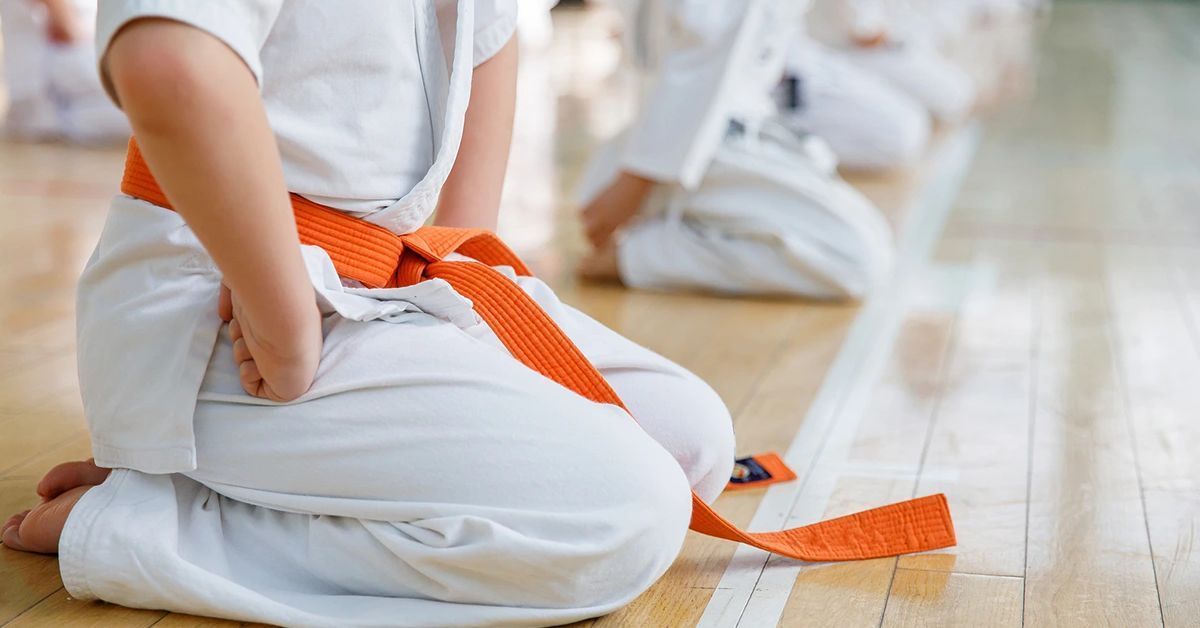
By Kailer Mattingly
•
August 21, 2024
The First Step Toward Empowerment Picture this, you’re walking into one of the best self-defense classes for beginners, feeling confident that you’ve made the right choice to protect yourself. You’ve chosen a place that fits your needs, one that will teach you how to stay safe and maybe even enjoy the process. But let’s be real—it wasn’t easy to get to this point. The options out there are overwhelming, and finding the right class can feel like navigating a maze. This article is here to simplify that process for you. By the time you’re done reading, you’ll know exactly what to look for ensuring you've found the best self-defense classes for beginners. You’ll feel empowered to make the best decision for your needs, whether you’re new to self-defense or ready to take your skills to the next level. 1. Define Your Goals: Start with Your "Why" Before you dive into the details of class formats and instructors, take a step back and ask yourself one crucial question: Why are you interested in self-defense? Your “why” matters more than you might think. Are you looking for practical techniques to protect yourself in real-life situations? Or are you interested in a more structured, martial-arts-based approach that blends fitness and discipline? Understanding your motivation will help guide your decision as you search for the best self-defense classes for beginners. For example, I’ve seen students come into beginner self-defense classes with all sorts of goals. One woman I trained with had just gone through a scary experience in a parking lot and wanted to feel more secure in her day-to-day life. Another man was simply looking for a new way to stay in shape. Their goals were different, and as a result, the best class for each of them was different, too. So, take a moment to get clear on your “why.” This will act as your compass as you navigate the options. 2. Evaluate Class Formats: What’s the Best Learning Environment for You? Now that you know your goals, it’s time to think about how you want to learn. Do you thrive in a group setting, or do you prefer personalized instruction? There’s no right or wrong answer here—just the right format for you as a beginner seeking the best self-defense classes. Personalized Instruction: If you’re someone who likes one-on-one attention, private lessons might be a great fit. You’ll get individualized feedback and progress at your own pace. I’ve had students who really flourished in this setting because they needed that extra attention to feel confident in their skills. Group Classes: On the other hand, group classes can be incredibly motivating. You’re surrounded by peers who are on the same journey, which creates a sense of camaraderie. Plus, you’ll have the chance to practice with different partners, which is valuable for learning to adapt to various situations. I’ve always enjoyed teaching group classes because the energy is contagious—everyone lifts each other up. 3. Research the Instructors’ Credentials: Expertise Matters You wouldn’t trust just anyone to teach you how to defend yourself, would you? The credentials and experience of the instructor play a massive role in the quality of your training, especially when choosing the best self-defense classes for beginners. Continuing Education and Dedication to Growth: A black belt is a great achievement, but what truly sets an instructor apart, is their commitment to ongoing education and training. Look for someone who actively seeks out new learning opportunities, whether it's advanced certifications, seminars, or specialized training programs. An instructor who is continually improving their own skills and knowledge demonstrates a dedication to staying at the forefront of the self-defense world. This ongoing pursuit of growth adds a layer of credibility that goes beyond just past achievements—it shows they are committed to providing the best possible training for their students. Teaching Style: Pay attention to the instructor’s teaching style. Are they approachable? Do they explain things in a way that makes sense to you? A great instructor isn’t just skilled—they’re also someone who can communicate effectively, breaking down complex techniques into digestible steps. I’ve seen plenty of talented martial artists who just didn’t have the knack for teaching. Make sure your instructor can do both. When I started training in self-defense, I found that the best instructors were the ones who made the material relatable. They didn’t just show me a technique—they told me *why* it worked and *how* I could use it in my everyday life. That’s the kind of teaching you want to look for in the best self-defense classes for beginners. 4. Assess the Curriculum: Practicality is Key Not all self-defense classes are created equal. Some focus heavily on traditional martial arts, while others prioritize real-world application. You want a curriculum that fits your goals and provides practical, actionable skills—especially if you’re seeking the best self-defense classes for beginners. Comprehensive and Practical: Look for a class that covers more than just physical techniques. Self-defense is about situational awareness, conflict de-escalation, and understanding the psychology of an attacker. A well-rounded curriculum should teach you how to avoid dangerous situations in the first place and how to defend yourself if avoidance isn’t possible. Tailored to Your Life: Consider whether the curriculum aligns with your day-to-day life. Will it teach you how to defend yourself in the environments you frequent, like parking lots, public transportation, or even your home? The techniques you learn should be applicable to the situations you’re most likely to encounter. I once had a student, a nurse, who worked late-night shifts and often walked through dimly lit parking garages. We tailored her training to focus on situations she might face during her commutes—quick, effective techniques she could use if someone approached her in that setting. That’s the kind of personalization you want to look for in the best self-defense classes for beginners. 5. Prioritize Real-World Application: Is It Street-Effective? When choosing the best self-defense classes for beginners, remember that you’re not training for a movie fight scene—you’re training for real life. Flashy moves might look cool, but they won’t help you when it counts. Instead, look for classes that focus on realistic scenarios and practical techniques. Is It Street-Effective? Your training should prepare you for real-life situations. Can you perform the techniques under pressure? Will they work against an opponent who’s bigger or stronger than you? Look for classes that emphasize simplicity and effectiveness over complexity and showmanship. Sparring and Drills: Ask how often students practice in real-world simulations. Sparring, controlled resistance, and situational drills are crucial for building confidence and competence in high-pressure situations. If your class never moves beyond cooperative drills, you might be missing out on the most important aspect of training—learning to apply the techniques under stress. I remember my first time sparring—it was a humbling experience. Techniques that worked perfectly in drills suddenly became much harder to execute when faced with a resisting opponent. But that’s exactly why sparring is so valuable. It teaches you to adapt and react in real time, which is what self-defense is all about. 6. Consider the Community: You’re Not Alone Training in the best self-defense classes for beginners isn’t just about learning techniques—it’s about becoming part of a community. The people you train with can have a huge impact on your experience, so it’s worth considering the vibe of the class. Supportive Environment: A class is more than just the curriculum—it’s the people. Does the community feel supportive? Are the students and instructors approachable and encouraging? You want to train in an environment where you feel safe to ask questions, make mistakes, and grow. The best self-defense classes for beginners should make you feel empowered, not judged. Networking and Growth: A strong sense of community can also help keep you motivated. I’ve seen students develop lasting friendships through self-defense classes, and those connections can be a big part of what keeps you coming back week after week. Look for a class that fosters not just skill development, but also camaraderie. 7. Test It Out: Take a Trial Class Before Committing You wouldn’t buy a car without taking it for a test drive, right? The same principle applies to finding the best self-defense classes for beginners. Most schools offer trial classes—take advantage of them to see if it’s a good fit. Evaluate Your Comfort Level: During the trial class, pay attention to how you feel. Were you comfortable? Did the class make you feel empowered? Did the instructor explain things in a way that resonated with you? Trust your gut here. Your comfort and sense of empowerment are just as important as the techniques you’re learning. I once took a trial class at a new gym, and while the instructor was skilled, I didn’t feel a connection with the community. The vibe just wasn’t right for me, so I kept looking until I found a place that felt like home. Don’t be afraid to try out a few different options until you find the one that clicks. Make Your Decision with Confidence Choosing the best self-defense classes for beginners isn’t just about finding a place to learn how to throw a punch—it’s about finding a place where you can build confidence, stay safe, and maybe even have some fun along the way. By defining your goals, evaluating the format and curriculum, researching the instructors, and testing out a class, you’ll be well on your way to making an informed decision. And remember, the most important thing is to take that first step. Once you’ve started, you’ll find that the journey was totally worth it. We can't wait to get you started on your martial arts journey. Sensei Kailer
Bushi Ban DFW Blog

By Kailer Mattingly
•
September 11, 2024
As parents, we all want to help our children succeed, especially when they face challenges like ADHD. You’ve likely tried various activities to help them burn off energy, stay focused, and boost their confidence, but nothing seems to hit the mark causing more frustration. Don’t lose hope yet! This is where martial arts come in—a surprising solution proving to be a game-changer for kids with ADHD. If you're wondering if martial arts is the right choice for your child, let's explore how this ancient practice may be a match for your modern-day ADHD warrior. The ADHD Dilemma: Mind Meets Body First, let’s talk about ADHD itself. ADHD affects the brain’s ability to focus, control impulses, and manage emotions. For kids, this can mean difficulties in school, challenges with friendships, and constant struggles at home to maintain a routine. Your child’s energy might seem boundless, and you’ve probably heard plenty of feedback from teachers about their lack of focus or disruptive behavior. Research has shown that physical activity helps the brain. It releases feel-good chemicals like dopamine and serotonin, which kids with ADHD often lack. But more than just running around or playing a game, kids with ADHD need something structured—a practice that teaches them to control both their body and mind. That’s exactly what martial arts does. It’s a holistic approach that combines physical activity with mental focus, which is the perfect combination for children who need to channel energy in positive ways. Martial Arts: Focus, Discipline, and Self-Control One of the biggest gifts martial arts offers is the ability to focus. Unlike many traditional sports that can be chaotic and overstimulating, martial arts teaches kids to center their attention on a single task. Whether it's learning a new technique, following instructions, or practicing forms (kata), children with ADHD develop the ability to concentrate on one thing at a time. As a martial arts instructor, I’ve seen kids come into class who can’t sit still for more than a few seconds. Fast-forward a couple of months, and they’re standing at attention, waiting for their turn with laser-sharp focus. What makes the difference? Repetition and structure. Martial arts moves are practiced again and again, which helps kids hone their concentration and improve their attention span. Along with focus comes discipline. This is a core tenet of martial arts—something every class, every movement, every lesson is built upon. Kids with ADHD often struggle with discipline in other areas of life, like school or at home, but in martial arts, they begin to understand the importance of following instructions and respecting rules. When they experience the reward of mastering a technique or earning a new belt, discipline starts to become part of who they are. I once worked with a student named Ben, who had a tough time controlling his impulsiveness. He’d jump ahead in class, interrupt others, and had a hard time waiting for his turn. But through his martial arts training, he learned the importance of patience. Over time, Ben developed self-control—not just in class, but at home and school too. His mom was thrilled when he started doing his homework without her asking, a small miracle in her words. Martial Arts Provides a Positive Energy Outlet If you’ve got an ADHD child, you know they often have more energy than they know what to do with. This excess energy can lead to hyperactivity, restlessness, and sometimes behavior issues. That’s why kids with ADHD must have a physical outlet—somewhere to burn off that energy in a positive and productive way. Martial arts offers a perfect solution. It’s high-energy, fast-paced, and fun. Kids are constantly moving—kicking, punching, practicing forms, and sparring—but they’re also doing it within a structured environment. There’s a balance of movement and stillness that helps ADHD kids focus their energy in controlled, productive ways. One of my students, Ethan, was a bundle of energy when he first came to class. His parents enrolled him because they were at their wit’s end—Ethan just couldn’t sit still, and it was affecting his behavior in school. After starting martial arts, Ethan learned how to channel his energy into learning and improving the new techniques he would learn. He had an outlet for all his pent-up energy, and soon, his focus and behavior at school improved, too. His teachers noticed that he was calmer and more engaged in class. Boosting Confidence and Self-Esteem Another major benefit of martial arts is the way it boosts self-esteem. Many ADHD kids struggle with low self-confidence because they feel different from their peers. They may have difficulty making friends, staying organized, or succeeding in school, which can leave them feeling like they don’t measure up. Martial arts gives them a place to shine. In martial arts, progress is tangible. Kids earn belts, stripes, and badges that reflect their hard work and dedication. For a child with ADHD, who may struggle with traditional markers of success, this sense of accomplishment can be a huge confidence booster. When children begin martial arts, many start off feeling shy or uncertain about their abilities. However, the structured progress of earning belts often sparks a noticeable change. As they advance, children tend to become more confident, assertive, and willing to take on challenges. This newfound self-assurance often extends beyond the dojo, helping them stand up for themselves in social settings, participate more actively in group activities, and approach tasks with a stronger belief in their capabilities. Martial arts empowers children to realize they're capable of achieving more than they initially thought possible.. The Power of Routine and Structure One of the key reasons martial arts is so beneficial for kids with ADHD is the routine and structure it provides. ADHD children often struggle with routine and can feel lost in environments where there are too many distractions or not enough structure. Martial arts, however, is built on a foundation of rituals and routines. Each class follows a specific format: warm-up, drills, forms, and sparring. These predictable routines give kids a sense of security and help them stay focused. They know what’s coming next, which reduces anxiety and keeps them engaged. Plus, the consistent practice of techniques reinforces discipline and responsibility, skills that can carry over into their home life and schoolwork. One parent once told me how her son, Jake, started to make his bed without being asked after a few months of “karate class”. He also started to help out more with chores around the house. Martial arts wasn’t just teaching him how to punch or kick—it was instilling the kind of discipline that made a real difference in his daily life. Developing Social Skills and Teamwork Social situations can also be challenging for children with ADHD. They may struggle with reading social cues, controlling impulses, or forming friendships. Martial arts can help in these areas, as well. While martial arts is often thought of as an individual sport, there’s a strong element of teamwork involved. Kids work together in pairs during sparring or practice drills, which helps them develop communication skills and learn how to collaborate with others. Instructors also teach the importance of respect—respect for themselves, their classmates, and their instructors. This social framework helps ADHD kids learn how to navigate interactions in a respectful and constructive way. In some martial arts schools, students are even given the opportunity to take on leadership roles as they advance in rank. They might help lead warm-ups or demonstrate techniques for newer students, which builds their confidence and social skills. Why Martial Arts Stands Out for ADHD Kids You may be thinking, “Why martial arts and not another sport?” It’s a valid question, especially since many parents turn to traditional team sports, such as soccer or baseball, for ADHD kids. But here’s where martial arts stands apart: In most team sports, kids spend a lot of time waiting for their turn or sitting on the bench. For a child with ADHD, this downtime can lead to distraction or frustration. Martial arts, on the other hand, keeps them engaged the entire time. There’s always something to do, whether it’s practicing forms, sparring, or learning new techniques. There’s no waiting—just constant engagement. Plus, martial arts allows kids to progress at their own pace. In team sports, success often hinges on the performance of the group, but in martial arts, individual growth is the focus. This means that even if a child struggles with certain techniques, they can work at their own speed without feeling like they’re holding the team back. For ADHD kids, this sense of control over their progress is empowering. Finding the Right Martial Arts Program for Your Child Of course, not all martial arts programs are created equal. It’s important to find an instructor and school that understands the unique needs of ADHD kids. Look for schools that emphasize personal growth, positive reinforcement, and a supportive environment. Ask about class sizes and whether the instructor has experience working with children who have ADHD. Many schools offer trial classes, so your child can get a feel for the environment before committing. This is a great way to see if martial arts is the right fit for you and your child and to observe how the instructor interacts with students. Is Martial Arts Right for Your Child with ADHD? In my experience, martial arts is one of the most effective activities for helping children with ADHD develop focus, discipline, and confidence. The structured environment, physical activity, and emphasis on self-control make it a perfect match for kids who need a positive outlet for their energy. So if you’re looking for an activity that will not only help your child burn off energy but also teach them invaluable life skills, give martial arts a try and come see us at Bushi Ban DFW. It may just be the key to unlocking their full potential—both inside and outside the dojo. Make it a great day! Sensei Kailer

By Kailer Mattingly
•
August 21, 2024
The First Step Toward Empowerment Picture this, you’re walking into one of the best self-defense classes for beginners, feeling confident that you’ve made the right choice to protect yourself. You’ve chosen a place that fits your needs, one that will teach you how to stay safe and maybe even enjoy the process. But let’s be real—it wasn’t easy to get to this point. The options out there are overwhelming, and finding the right class can feel like navigating a maze. This article is here to simplify that process for you. By the time you’re done reading, you’ll know exactly what to look for ensuring you've found the best self-defense classes for beginners. You’ll feel empowered to make the best decision for your needs, whether you’re new to self-defense or ready to take your skills to the next level. 1. Define Your Goals: Start with Your "Why" Before you dive into the details of class formats and instructors, take a step back and ask yourself one crucial question: Why are you interested in self-defense? Your “why” matters more than you might think. Are you looking for practical techniques to protect yourself in real-life situations? Or are you interested in a more structured, martial-arts-based approach that blends fitness and discipline? Understanding your motivation will help guide your decision as you search for the best self-defense classes for beginners. For example, I’ve seen students come into beginner self-defense classes with all sorts of goals. One woman I trained with had just gone through a scary experience in a parking lot and wanted to feel more secure in her day-to-day life. Another man was simply looking for a new way to stay in shape. Their goals were different, and as a result, the best class for each of them was different, too. So, take a moment to get clear on your “why.” This will act as your compass as you navigate the options. 2. Evaluate Class Formats: What’s the Best Learning Environment for You? Now that you know your goals, it’s time to think about how you want to learn. Do you thrive in a group setting, or do you prefer personalized instruction? There’s no right or wrong answer here—just the right format for you as a beginner seeking the best self-defense classes. Personalized Instruction: If you’re someone who likes one-on-one attention, private lessons might be a great fit. You’ll get individualized feedback and progress at your own pace. I’ve had students who really flourished in this setting because they needed that extra attention to feel confident in their skills. Group Classes: On the other hand, group classes can be incredibly motivating. You’re surrounded by peers who are on the same journey, which creates a sense of camaraderie. Plus, you’ll have the chance to practice with different partners, which is valuable for learning to adapt to various situations. I’ve always enjoyed teaching group classes because the energy is contagious—everyone lifts each other up. 3. Research the Instructors’ Credentials: Expertise Matters You wouldn’t trust just anyone to teach you how to defend yourself, would you? The credentials and experience of the instructor play a massive role in the quality of your training, especially when choosing the best self-defense classes for beginners. Continuing Education and Dedication to Growth: A black belt is a great achievement, but what truly sets an instructor apart, is their commitment to ongoing education and training. Look for someone who actively seeks out new learning opportunities, whether it's advanced certifications, seminars, or specialized training programs. An instructor who is continually improving their own skills and knowledge demonstrates a dedication to staying at the forefront of the self-defense world. This ongoing pursuit of growth adds a layer of credibility that goes beyond just past achievements—it shows they are committed to providing the best possible training for their students. Teaching Style: Pay attention to the instructor’s teaching style. Are they approachable? Do they explain things in a way that makes sense to you? A great instructor isn’t just skilled—they’re also someone who can communicate effectively, breaking down complex techniques into digestible steps. I’ve seen plenty of talented martial artists who just didn’t have the knack for teaching. Make sure your instructor can do both. When I started training in self-defense, I found that the best instructors were the ones who made the material relatable. They didn’t just show me a technique—they told me *why* it worked and *how* I could use it in my everyday life. That’s the kind of teaching you want to look for in the best self-defense classes for beginners. 4. Assess the Curriculum: Practicality is Key Not all self-defense classes are created equal. Some focus heavily on traditional martial arts, while others prioritize real-world application. You want a curriculum that fits your goals and provides practical, actionable skills—especially if you’re seeking the best self-defense classes for beginners. Comprehensive and Practical: Look for a class that covers more than just physical techniques. Self-defense is about situational awareness, conflict de-escalation, and understanding the psychology of an attacker. A well-rounded curriculum should teach you how to avoid dangerous situations in the first place and how to defend yourself if avoidance isn’t possible. Tailored to Your Life: Consider whether the curriculum aligns with your day-to-day life. Will it teach you how to defend yourself in the environments you frequent, like parking lots, public transportation, or even your home? The techniques you learn should be applicable to the situations you’re most likely to encounter. I once had a student, a nurse, who worked late-night shifts and often walked through dimly lit parking garages. We tailored her training to focus on situations she might face during her commutes—quick, effective techniques she could use if someone approached her in that setting. That’s the kind of personalization you want to look for in the best self-defense classes for beginners. 5. Prioritize Real-World Application: Is It Street-Effective? When choosing the best self-defense classes for beginners, remember that you’re not training for a movie fight scene—you’re training for real life. Flashy moves might look cool, but they won’t help you when it counts. Instead, look for classes that focus on realistic scenarios and practical techniques. Is It Street-Effective? Your training should prepare you for real-life situations. Can you perform the techniques under pressure? Will they work against an opponent who’s bigger or stronger than you? Look for classes that emphasize simplicity and effectiveness over complexity and showmanship. Sparring and Drills: Ask how often students practice in real-world simulations. Sparring, controlled resistance, and situational drills are crucial for building confidence and competence in high-pressure situations. If your class never moves beyond cooperative drills, you might be missing out on the most important aspect of training—learning to apply the techniques under stress. I remember my first time sparring—it was a humbling experience. Techniques that worked perfectly in drills suddenly became much harder to execute when faced with a resisting opponent. But that’s exactly why sparring is so valuable. It teaches you to adapt and react in real time, which is what self-defense is all about. 6. Consider the Community: You’re Not Alone Training in the best self-defense classes for beginners isn’t just about learning techniques—it’s about becoming part of a community. The people you train with can have a huge impact on your experience, so it’s worth considering the vibe of the class. Supportive Environment: A class is more than just the curriculum—it’s the people. Does the community feel supportive? Are the students and instructors approachable and encouraging? You want to train in an environment where you feel safe to ask questions, make mistakes, and grow. The best self-defense classes for beginners should make you feel empowered, not judged. Networking and Growth: A strong sense of community can also help keep you motivated. I’ve seen students develop lasting friendships through self-defense classes, and those connections can be a big part of what keeps you coming back week after week. Look for a class that fosters not just skill development, but also camaraderie. 7. Test It Out: Take a Trial Class Before Committing You wouldn’t buy a car without taking it for a test drive, right? The same principle applies to finding the best self-defense classes for beginners. Most schools offer trial classes—take advantage of them to see if it’s a good fit. Evaluate Your Comfort Level: During the trial class, pay attention to how you feel. Were you comfortable? Did the class make you feel empowered? Did the instructor explain things in a way that resonated with you? Trust your gut here. Your comfort and sense of empowerment are just as important as the techniques you’re learning. I once took a trial class at a new gym, and while the instructor was skilled, I didn’t feel a connection with the community. The vibe just wasn’t right for me, so I kept looking until I found a place that felt like home. Don’t be afraid to try out a few different options until you find the one that clicks. Make Your Decision with Confidence Choosing the best self-defense classes for beginners isn’t just about finding a place to learn how to throw a punch—it’s about finding a place where you can build confidence, stay safe, and maybe even have some fun along the way. By defining your goals, evaluating the format and curriculum, researching the instructors, and testing out a class, you’ll be well on your way to making an informed decision. And remember, the most important thing is to take that first step. Once you’ve started, you’ll find that the journey was totally worth it. We can't wait to get you started on your martial arts journey. Sensei Kailer
Quick Links
Contact Us
Find Us
© 2025 Made With Love by Winterbourne
